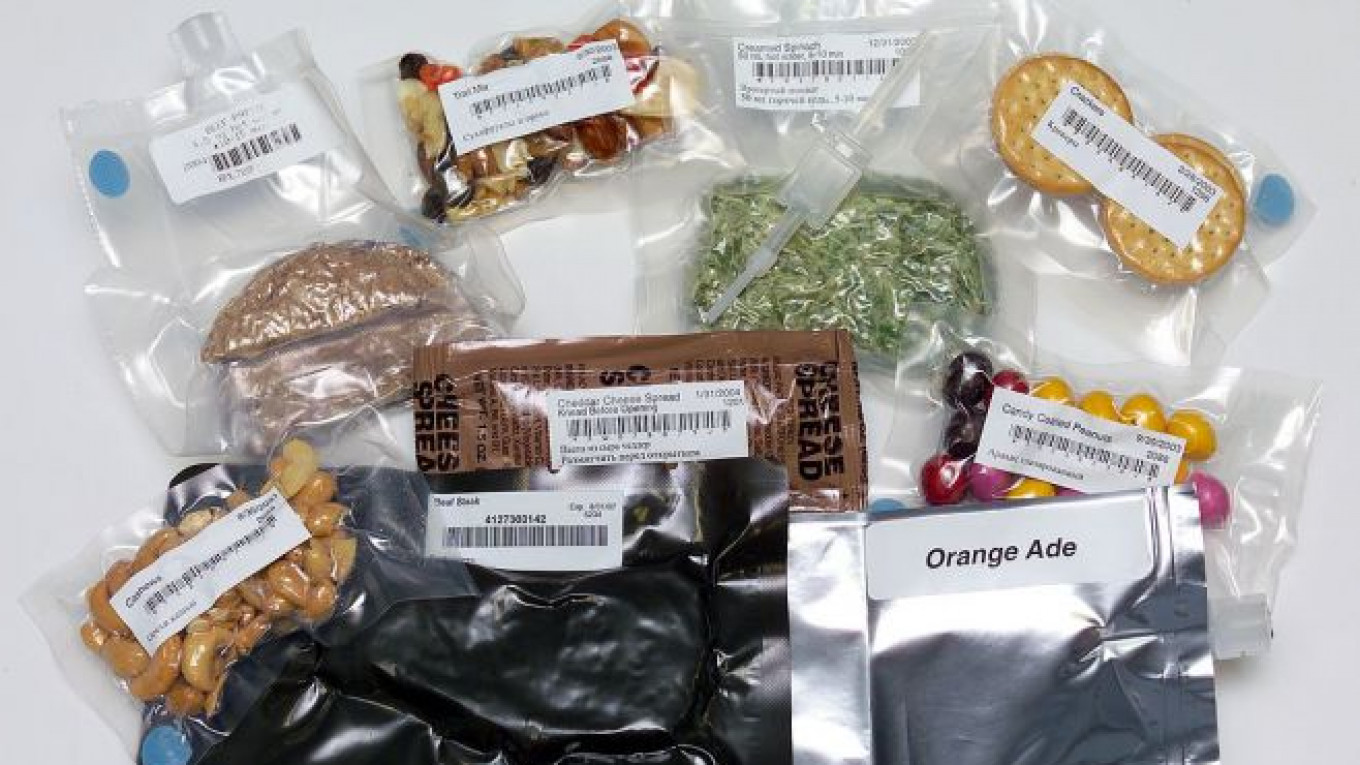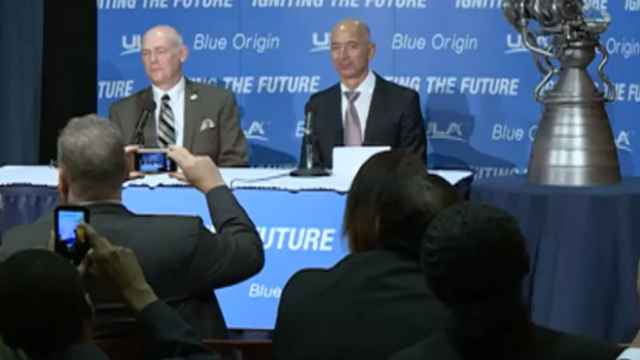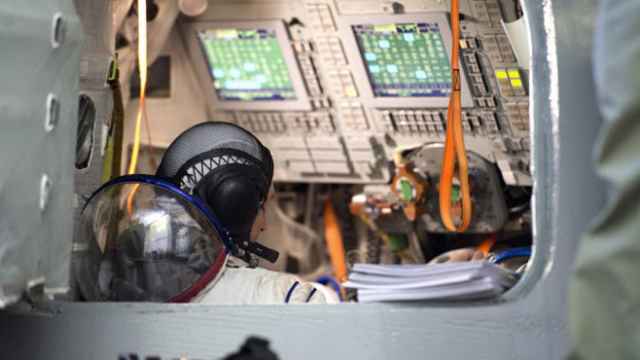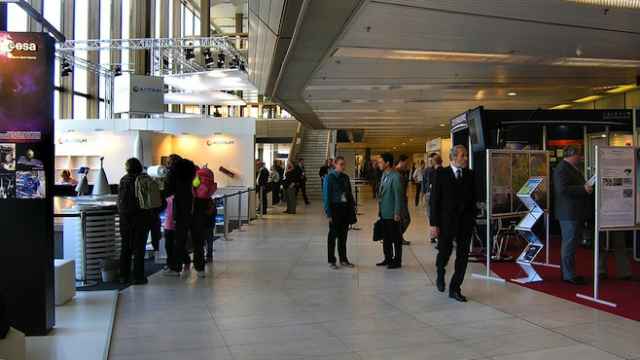In space, no one can hear you scream sanctions.
Or so we thought.
The Moscow Times has learned from the European Space Agency (ESA) that Russia's ban on select Western food imports not only clears French cheese off Russian shelves, but also prevents astronauts from bringing their favorite foods to space, a member of the European Space Agency (ESA) said Friday.
Romain Charles, an ESA astronaut-support engineer, told The Moscow Times by e-mail that Russia's food import ban "had a slight impact on space food" transported to the International Space Station (ISS).
"Astronauts' families have the opportunity to send some gifts to the ISS," Charles said. "Because these gifts can't come back to Earth, they generally choose to send some food, such as candies, dried fruit, etc., that the astronaut likes."
These gifts are sometimes sent to the ISS aboard a Russian Soyuz spacecraft, which is currently the only manned vehicle that travels to the $160 billion orbital outpost.
"This is where the Russian food import ban had some impact," Charles said.
Russia in August banned imports of meat, fish, cheese, dairy, fruit and vegetables from Western countries that had sanctioned Russia for its support of separatist militias in eastern Ukraine.
Russia also handles all preparations for Soyuz launches, meaning that European food could be barred from traveling aboard the spacecraft.
However, Charles made it clear that the ESA's official space food — which is crafted in such world-famous restaurant's as Italy's Combal Zero — has felt no impact from the ban.
"The ESA [space food] prepared by the chefs does not go to the ISS aboard [Russian] Progress and Soyuz vehicles," Charles said.
The majority of European astronauts' food is actually provided by NASA, and even their high-flying European "bonus food" hitches rides aboard American commercial cargo vehicles such as SpaceX's Dragon and Orbital Sciences' Cygnus resupply vehicles.
Most Russian food, meanwhile, flies to the ISS on Russian Progress resupply vehicles, Charles said.
And so, thankfully, the import ban has largely been evaded, and Europe's current ISS denizen Alex Gerst is free to continue eating food prepared by American NASA contractors and Europe's finest chefs.
Space agencies prepare special food for their astronauts for a variety of reasons. Some food can be difficult to eat in microgravity, with liquids in particular demanding special packaging. Astronauts' diets also need to be carefully controlled for the sake of medical research, an important part of manned spaceflight.
Contact the author at [email protected]
A Message from The Moscow Times:
Dear readers,
We are facing unprecedented challenges. Russia's Prosecutor General's Office has designated The Moscow Times as an "undesirable" organization, criminalizing our work and putting our staff at risk of prosecution. This follows our earlier unjust labeling as a "foreign agent."
These actions are direct attempts to silence independent journalism in Russia. The authorities claim our work "discredits the decisions of the Russian leadership." We see things differently: we strive to provide accurate, unbiased reporting on Russia.
We, the journalists of The Moscow Times, refuse to be silenced. But to continue our work, we need your help.
Your support, no matter how small, makes a world of difference. If you can, please support us monthly starting from just $2. It's quick to set up, and every contribution makes a significant impact.
By supporting The Moscow Times, you're defending open, independent journalism in the face of repression. Thank you for standing with us.
Remind me later.






